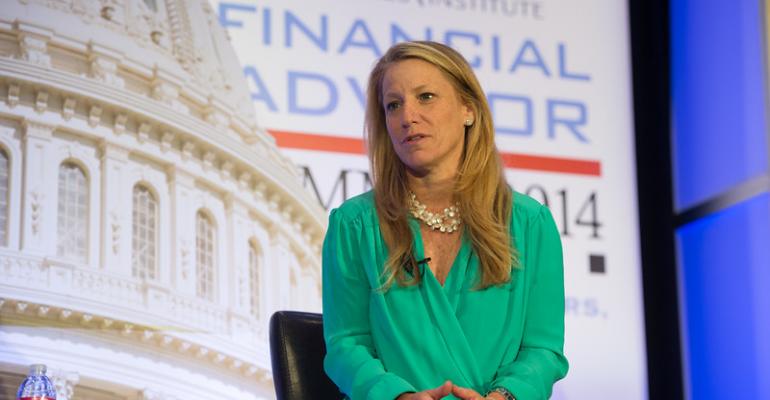Brokers and firms could see a regulatory proposal on FINRA's planned Comprehensive Automated Risk Data System (CARDS) initiative as early as next month. And while there are still concerns about the regulator's ability to secure the proposed database, as well as the cost of implementing such a project, Susan Axelrod, FINRA's executive vice president of regulatory operations, took time Monday to outline how the proposal is moving forward.
While the Financial Services Institute expects a new FINRA CARDs rule proposal to come out in the next month or so, according to Robin Traxler, FSI's vice president of regulatory affairs, Axelrod was less specific on a timeline, simply telling reporters on Monday the regulator was working on issuing a notice “shortly.”
But the regulator remains committed to CARDS, with Axelrod saying it could be transformational to the industry in a number of ways. CARDs will help the regulator look at trends across the industry in a real-time way, she added, noting FINRA also hopes to leverage the data gathered by CARDS in the examination process.
“In my 25 years as a regulator, there’s been no other issue where we have been as engaged, Axelrod said. “We’ve got two firms giving pilot data, six firms that are working on the data specs with us, we have 11 diverse firms making up our sounding board, we’ve met with FSI and will continue to meet with FSI, we’ve met with SIFMA, and we talk about it with all of our committees.”
Since its unveiling as a concept release in December, broker/dealers, industry groups and individual advisors have been critical of the draft proposal (over 800 comment letters were received on the proposal), questioning how FINRA would handle the client account data, the security of such information and the costs of creating and maintaining a system of this size.
“Data security [is] a critical issue for every company in America today,” Axelrod said, but noted that FINRA has been receiving data for a number of years. She added that FINRA’s early decision to remove the personal identifying information requirement, particularly clients’ Social Security numbers, was helpful in protecting the data security of the overall proposed CARDS database. “The database we will have is much less interesting and much less vulnerable. It doesn’t mean it’s invulnerable, but that removal of PII is really significant.” And unlike if a broker/dealer or advisory firm should be hacked, cyber thieves will not be able to transfer funds or such within FINRA’s system.
Another key area, cost, is also being addressed by FINRA, Axelrod said. FINRA’s chief economist Jonathan Sokobin, and his team has been conducting an ongoing cost-benefit analysis since the initiative was announced. “They’ve met with firms, they’ve issued surveys and that’s just in the initial phase of this project.”
“We’re trying to be responsive, but move this initiative forward,” Axelrod said. ‘We think the benefits are huge, we just need to get a handle on what the costs are.” While a regulatory notice is expected soon, Axelrod said that the complete implementation of a CARDS rule is a long way off. Once the regulator issues the notice, there's a 60-day comment period and then FINRA must submit the rule to the SEC for review.
In addition to CARDS, Axelrod also discussed the status of several other key rulemaking projects, including BrokerCheck enhancements and the proposed broker recruitment compensation disclosure, which recently underwent significant changes.
With FINRA’s BrokerCheck, Axelroad addressed concerns regarding the regulator’s reported plans to increase the amount of information included in the report, such as examination scores.
“I think that’s a really sensitive topic,” Axelrod told FSI Advisor Summit attendees. “People don’t take the test to get the A+, people take the test to pass.” One of the things FINRA is doing in this area is looking to see if there are any correlations between failing the test and the disciplinary record of advisor. But Axelrod stressed that FINRA is not rushing to do any rulemaking yet.
On the recent changes to the broker recruitment compensation disclosure, Axelrod said the rule was not completely finalized. Following its board of directors meeting earlier this month, FINRA revised its rule. Instead of requiring recruiting firms to disclose the compensation package provided to transitioning advisors, FINRA will now require firms to provide clients with a suggested list of questions around their advisor’s compensation to help decide if they’d like to continue working with that advisor.
“Any transparency for investors is a good thing in this area,” Axelrod said. “We’re in a better place than we were, but we’ll see what happens. We’ve got to do something.”

